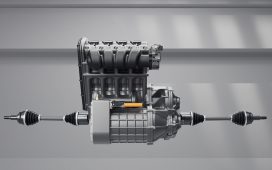The average price of a new car has jumped by £12,000 in five years as the industry embraces more expensive electric models as part of the push for net zero.
Prices have leapt 43pc since 2018 as manufacturers junk internal combustion engines in favour of battery power, according to research by Autotrader.
Higher energy prices, a shortage of parts and consumers’ preference for bigger, safer cars with more technology in them have also driven up prices.
The average new car cost £39,308 in January this year, Autotrader said, up from £27,305 half a decade earlier.
Manufacturers typically charge around £10,000 more for an electric version of any given model than a petrol one. However, electric vehicles are cheaper to run if charged at home, meaning they offer an overall saving as long as a driver does enough miles.
For example, a Volkswagen Golf starts at around £25,000, compared to £36,400 for a similarly-sized all-electric VW ID.3.
Prices for Nissan’s battery-powered Leaf start at £29,000, while its combustion engine model Juke starts at £20,700.
New vehicle prices are also rising because demand is outstripping supply. New car stock is about 60pc below the levels of early 2021, just below the lockdowns which slashed production around the world.
The shift from cheaper, smaller cars to bigger SUVs is having an impact too, Auto Trader said.
Over the years, cars have become bigger as road safety rules have demanded more measures such as airbags, side impact bars, and crumple zones which can absorb impact.
Buying tastes have changed at the same time as more customers opt for taller vehicles and roomier cabins – all of which adds cost.
Car makers selling in the UK typically want a high NCAP safety rating, which now means the addition of systems such as autonomous braking, demanding cameras and on-board computer processing power to make quick decisions, adding more to the price.
The UK is the second-biggest car market in Europe after Germany, and high and rising prices are attracting new entrants into the market. A number of Chinese brands are either already taking orders or planning to open showrooms.
Up to 30 new electric vehicle marques are eyeing up the UK car market, according to an industry report seen by The Telegraph a month ago – most of them Chinese.
Challengers have designs on the cheaper end of the market and are preparing to sell mass market battery-powered cars to Britain.
Companies such as BYD and Ora, which already have agreements in place with UK dealers, will be joined by a raft of other car makers including Chery, Dongfeng and Haval. They are big brands in China but virtually unknown to British buyers.
MG is now one of the fastest-growing car companies in the UK, passing Citroen, Honda, Renault and Skoda. While a British marque, MG has been Chinese owned since 2005.
As The Telegraph revealed last year, MG plans to expand electric car sales further in the UK.











